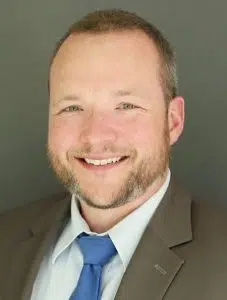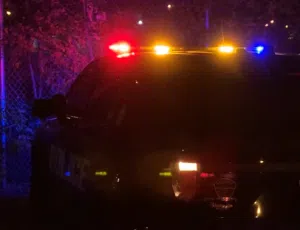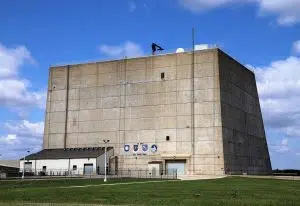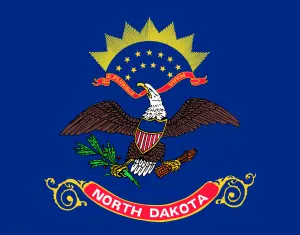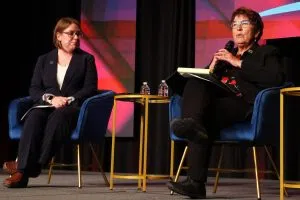
State Rep. Vicky Steiner, right, R-Dickinson, speaks next to moderator Andrea Pfennig during the Greater North Dakota Chamber Policy Summit on Sept. 10, 2024. (Michael Achterling/North Dakota Monitor)
(North Dakota Monitor) -Even if the proposed measure to eliminate assessment-based property taxes fails at the ballot this November, demand for property tax relief won’t be going away, state Rep. Vicky Steiner said.
“I think it’s dangerous to ignore the fact that this is a passion for these voters,” the Dickinson Republican said.
Steiner’s comments came during a Tuesday panel on tax issues during the Greater North Dakota Chamber’s policy summit in Bismarck. State Sen. Brad Bekkedahl, R-Williston, and former Fargo senator Tony Grindberg joined her on stage.
If the ballot measure passes, the state will be required to reimburse local governments annually by an amount no less than the property taxes levied for the 2024 tax year.
A committee of lawmakers recently finalized a cost estimate that pegged the financial impact of the measure at roughly $3.15 billion for the 2025-2027 biennium. Proponents of the measure, including sponsoring committee chair Rick Becker, have previously called the state’s figures are overblown and say the cost would actually be around $2.32 billion per two-year budget cycle.

Both Bekkedahl and Grindberg — who are current and former chairs of the Senate Appropriation Committee — said Tuesday they strongly oppose the proposal, warning that it would destabilize funding for local governments and the state alike.
“Over half of the current general fund spending will have to be diverted to support the property tax measure,” Bekkedahl said.
Grindberg, North Dakota manager for Xcel Energy, said he worries about that instability having a ripple effect on North Dakota’s economy.
“I think what’s healthy for business is a very predictable, stable operating environment,” he said.
Steiner, who sits on the Legislature’s interim Taxation Committee, said she agrees that the measure would cause some upheaval if it passes, but that it wouldn’t be anything the state government can’t handle. Lawmakers would figure out how to adjust the budget accordingly, she said.
“The sky is not falling if it passes,” Steiner said.
All three panel participants agreed that the state could be doing more to make sure North Dakotans understand the property tax system and the tax relief programs the Legislature is currently funding.
North Dakota residents should know that the state has already set aside a lot of money to help local governments, Bekkedahl said. He said that lawmakers have approved about $25 billion to this end since the 2013-2015 biennium, though that amount is not limited to property taxes.
Steiner said that part of the problem is the state’s reliance on mill levies for calculating property taxes.
Mill levies are how local governing bodies, like school districts and cities, determine how much property tax money they get.
Steiner said residents find mill levies overly confusing, and that the ballot measure could be an opportunity for the state to do away with the system.
Steiner and Bekkedahl both expressed support for implementing tax caps in North Dakota. Typically, tax caps set limits on how much a property’s assessed value can increase from year to year. The Legislature has previously shot down proposals to cap residential property tax, Steiner said.
“If we could have gotten caps to pass, I don’t even think we’d be having this discussion,” she said.
